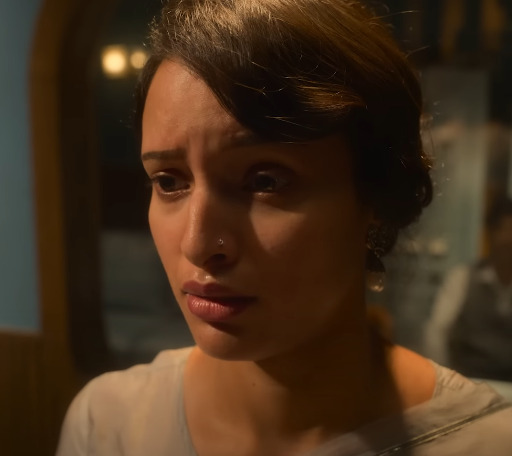Written By: Namrata Bose
Qala: The Symphony of Pain and Victory in Bollywood Cinema
In cinema, very few movies experiment with the taboo of human relations and its twists.
“Qala” is a film that explores this realm. Revolving around the life of a young singer named Qala Manjushree (Triptii Dimri), it is crafted with remarkable visual symmetry and a poignant narrative. This is the second time Anvita Dutt and Triptii Dimri have come together with Anushka Sharma’s Clean Slate Filmz after Bulbbul. While Bulbbul is a sad social tragedy, this film looks into the conditions endured by women in the system of Hindi classical music – still predominantly male. But the story here is not as straightforward as it seems. The movie’s visual appeal, filled with moths, symbols, and music, reveals the enshrinement of an emotional decline of Qala. Her story is one of survival and resilience against personal demons, entering the male-dominated field of music and wanting to carve her independent path. It also addresses societal gender bias.

Exploring Patriarchy and Mental Health in this Cinematic Masterpiece
Qala’s dream is to gain her mother Urmila’s (Swastika Mukherjee) approval – a former thumri singer of great repute. The story begins with Qala receiving the ‘Golden Vinyl’ for an outstanding performance in Hindi music, but the rest of the film delves into her inner turmoil. Her childhood memories and buried traumas surface, rooted in her mother’s postpartum depression and blame for her twin brother’s death. This mother-daughter dynamic is rife with rejection, expectation, and the lack of affection. Urmila’s cold demeanor and high expectations haunt our chief protagonist into adulthood, and their strained relationship is central to the narrative.
From Childhood Trauma to Societal Pressure: The Haunting Tale of ‘Qala’
As Qala gains fame, her success is clouded by guilt and internal strife. In a desperate bid to gain her mother’s love, she takes drastic measures, including sabotaging her adopted brother Jagan’s (Babil Khan) career, poisoning his milk to damage his voice. Though she achieves recognition, guilt and her mother’s continued influence torment her. She also becomes a vocal advocate for women’s rights, pushing back against male dominance in the music industry.
How ‘Qala’ Shines a Light on Gender Bias in Hindi Classical Music
Qala’s mental health gradually deteriorates, and despite her fame, she is plagued by hallucinations and overwhelming guilt. This ultimately leads to her tragic end, with Qala committing suicide, leaving behind a mother who finally regrets not acknowledging her daughter’s talent.
Cinematography and Symbolism: The Visual Brilliance of this movie
The film’s setting transitions between Calcutta, symbolizing culture, and Himachal Pradesh, which represents the cold emotional distance between Qala and her mother. Amit Trivedi’s music beautifully reflects the period, often speaking louder than words. The background score by Sagar Desai is the final piece of the emotional puzzle. The costumes, cinematography, and symbolism (with the Mercury symbol playing a key role) all enhance the film’s aesthetic.
Swastika Mukherjee and Tripti Dimri Shine in ‘Qala’ – A Bollywood Drama on Mental Health
Swastika Mukherjee and Triptii Dimri deliver powerhouse performances, while Babil Khan, in his debut, leaves a lasting impression. The film also explores deeper issues like gender inequality, sexual harassment, mental health, and patriarchal pressures that still resonate today.
Why ‘Qala’ Is More Than Just a Movie: A Deep Dive into Abuse and Redemption
Qala is not just a film; it is a powerful message. It highlights how patriarchy inflicts both physical and emotional trauma on women, and the struggles faced by women in creative fields. The film explores a range of issues from abuse to the often-dismissed topic of women’s mental health, making it a thought-provoking and visually captivating piece of cinema.
Note: “The images used in this article are screenshots taken from YouTube and have been converted into images using Canva, Gemini and ChatGPT tools for the purpose of this article only. The World of Movies acknowledges that it does not hold any proprietary rights over the images and that their use is solely for the purpose of this article.”
